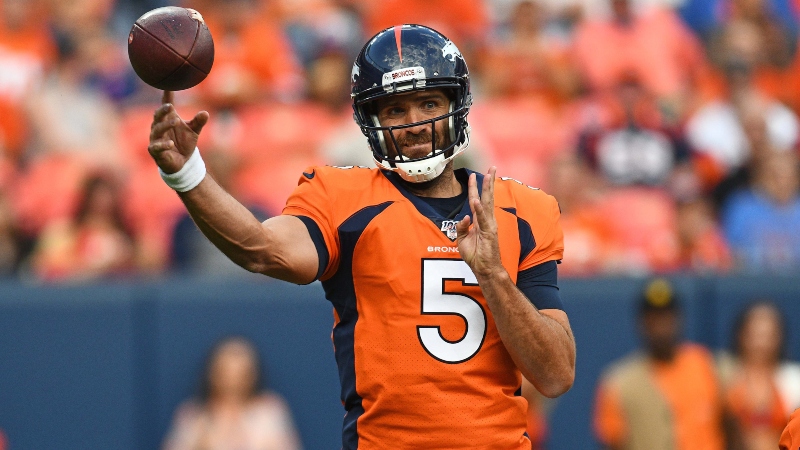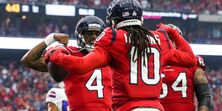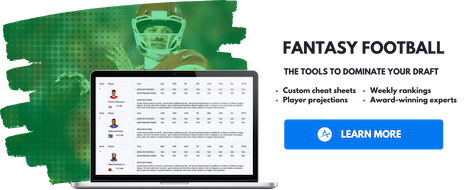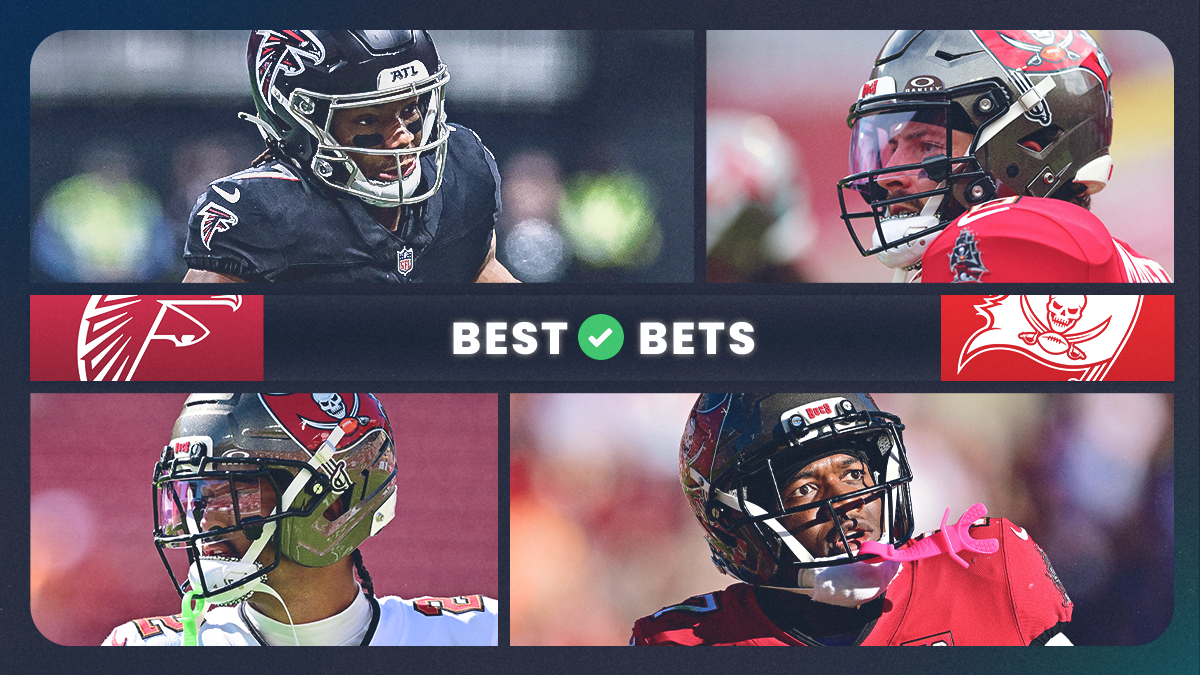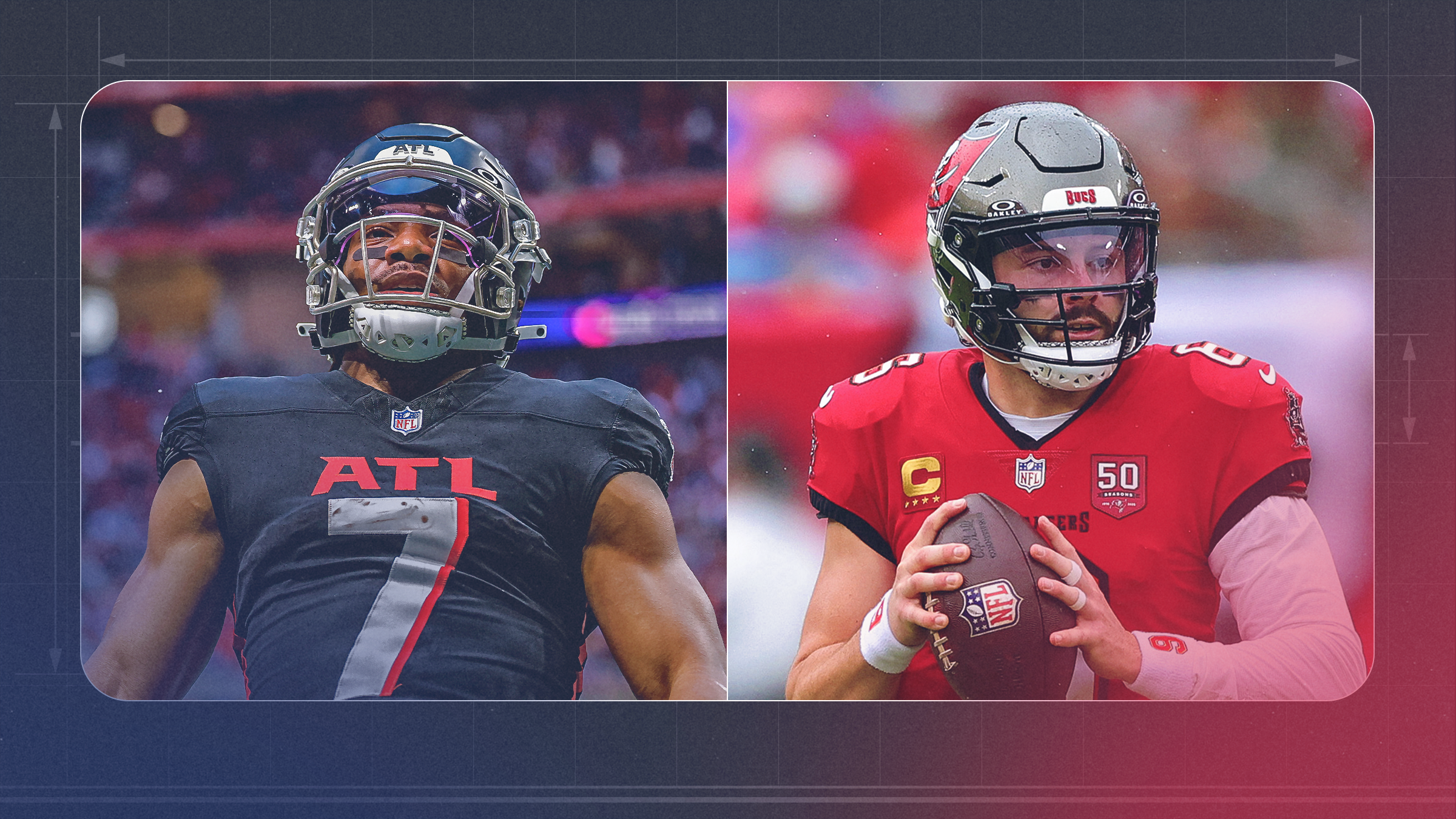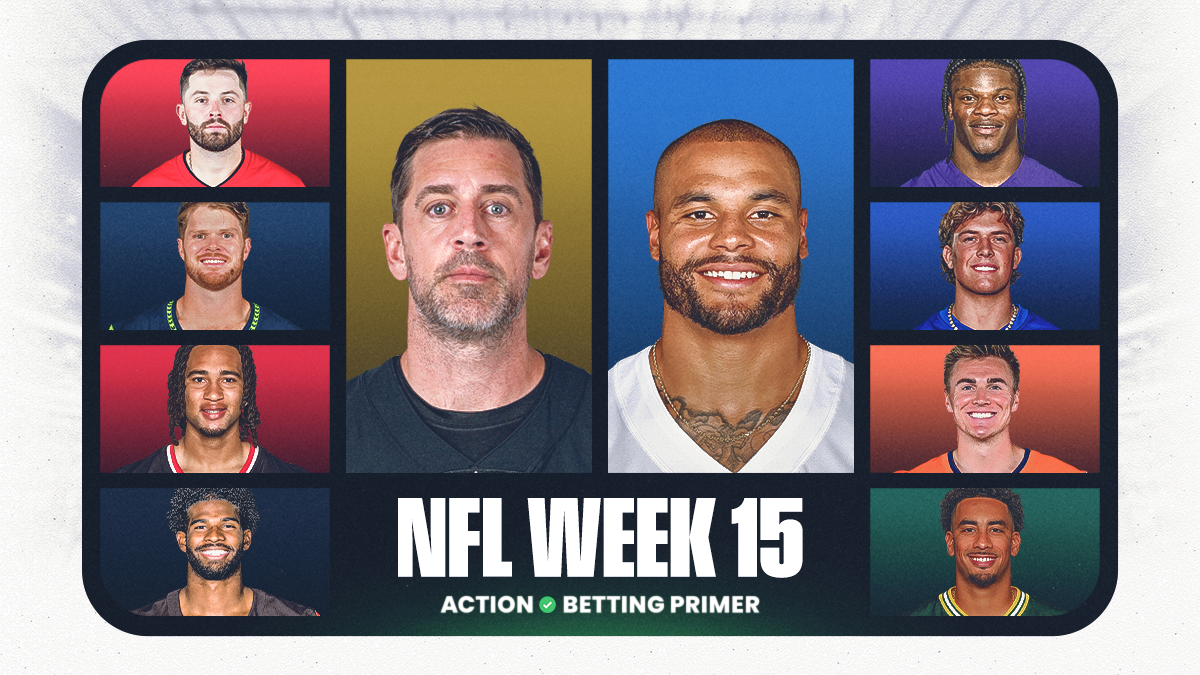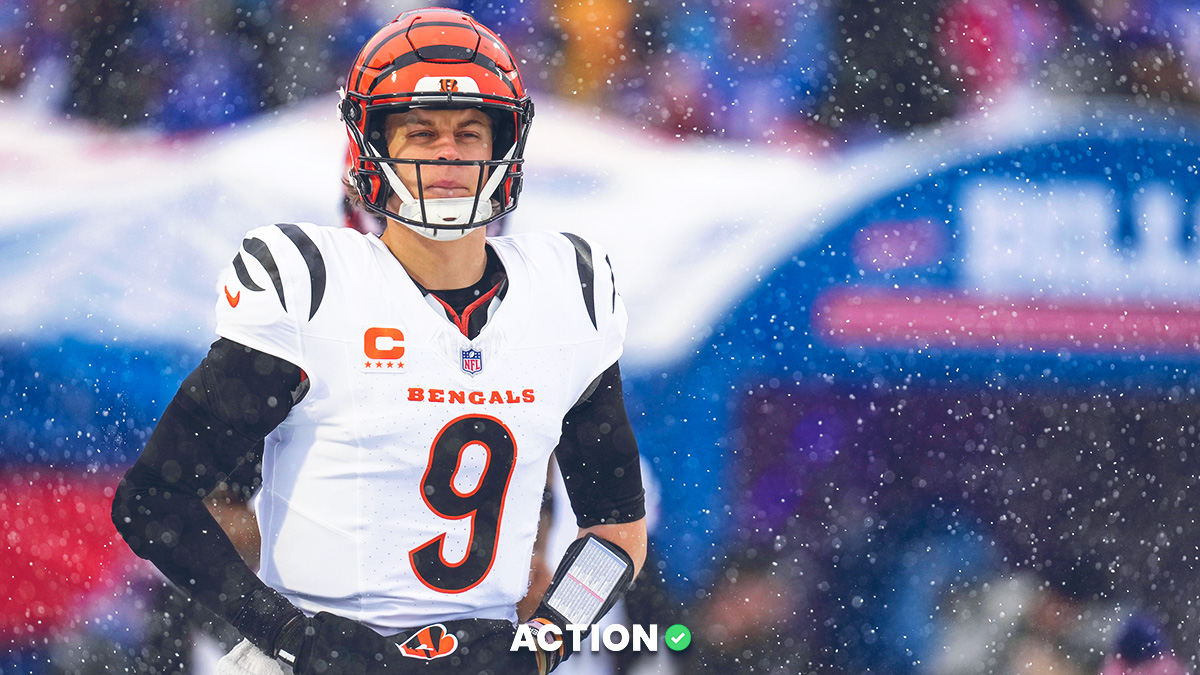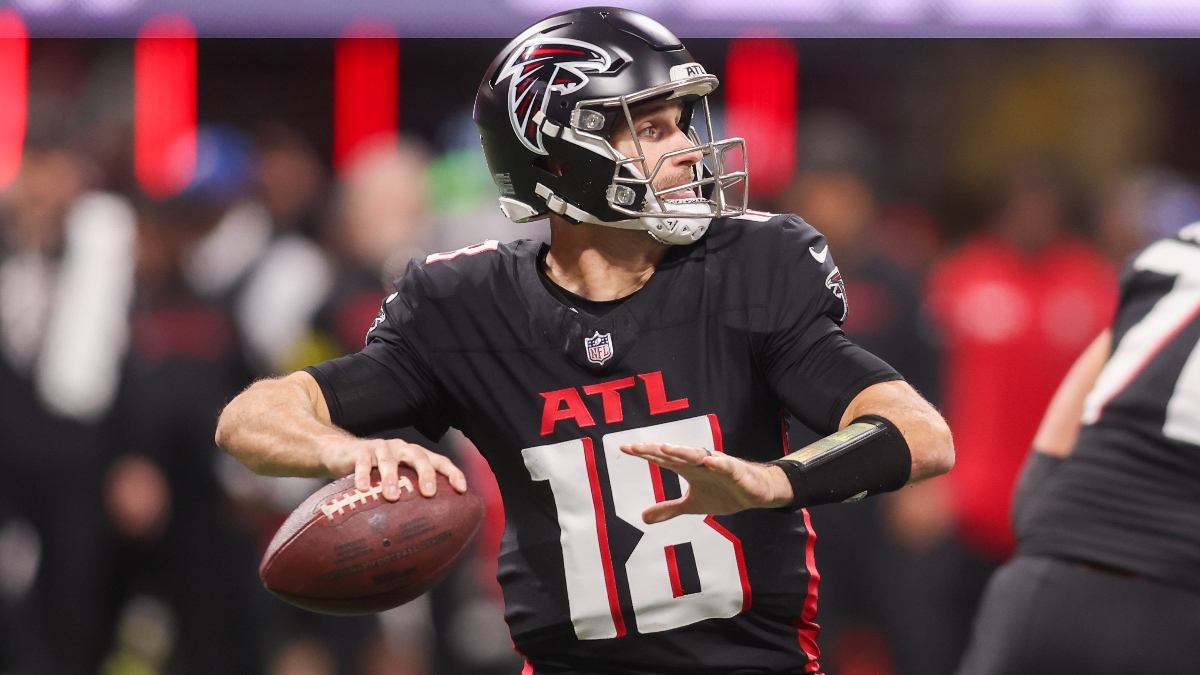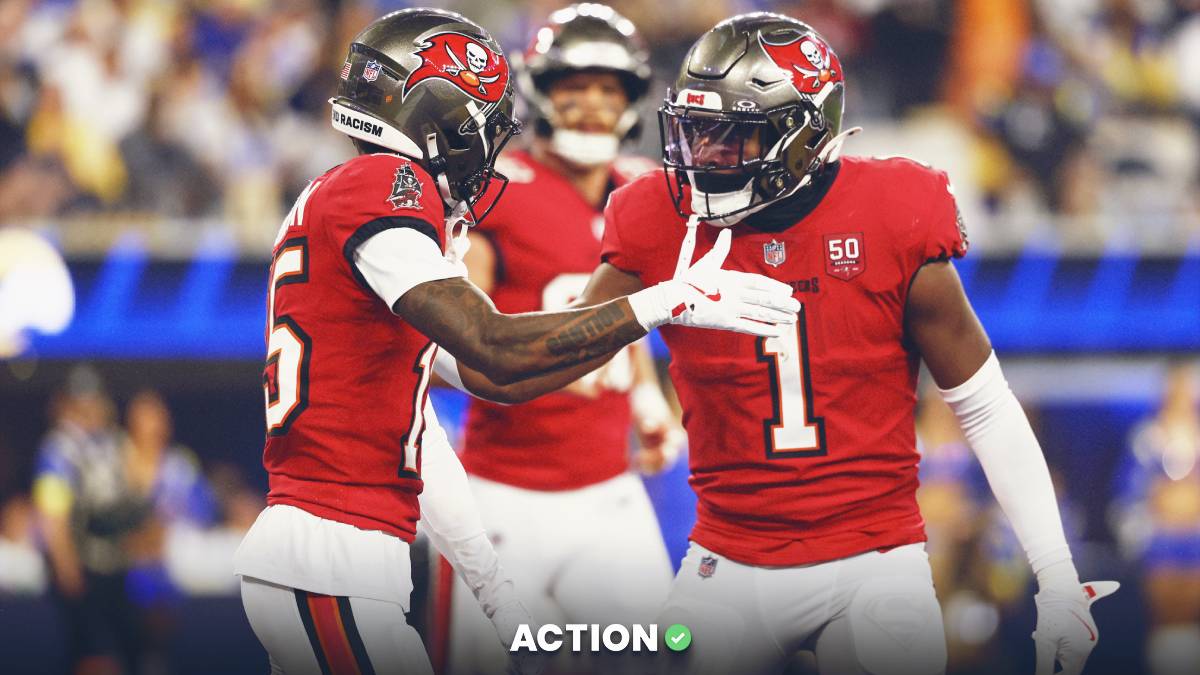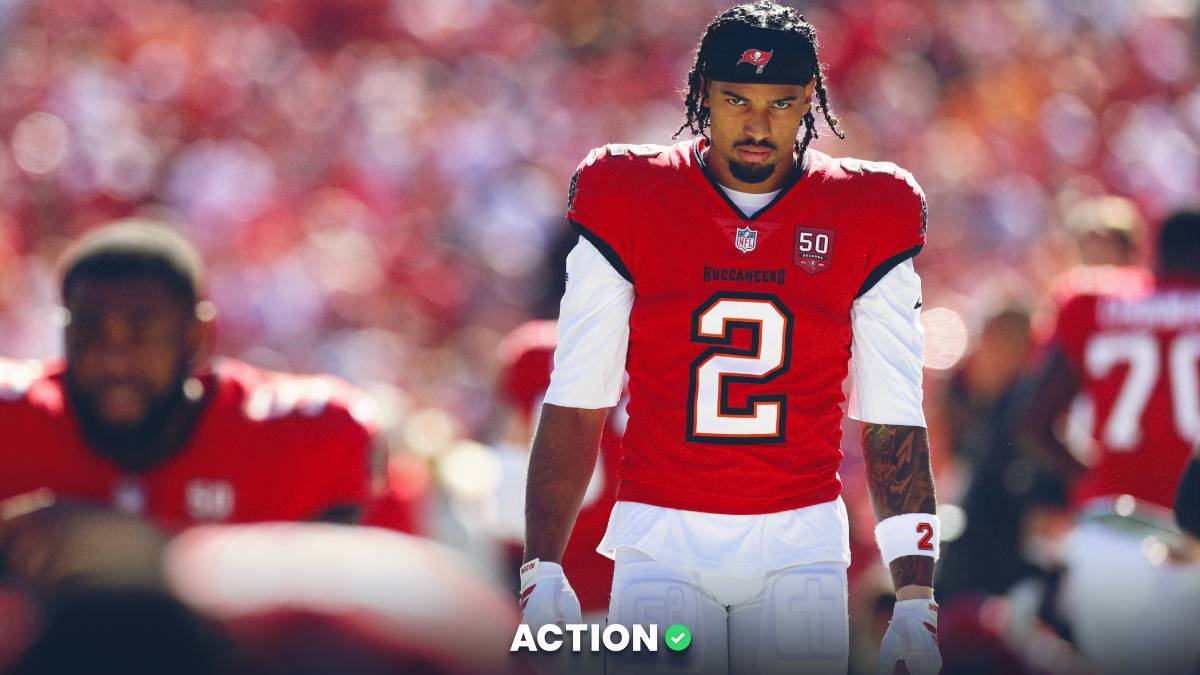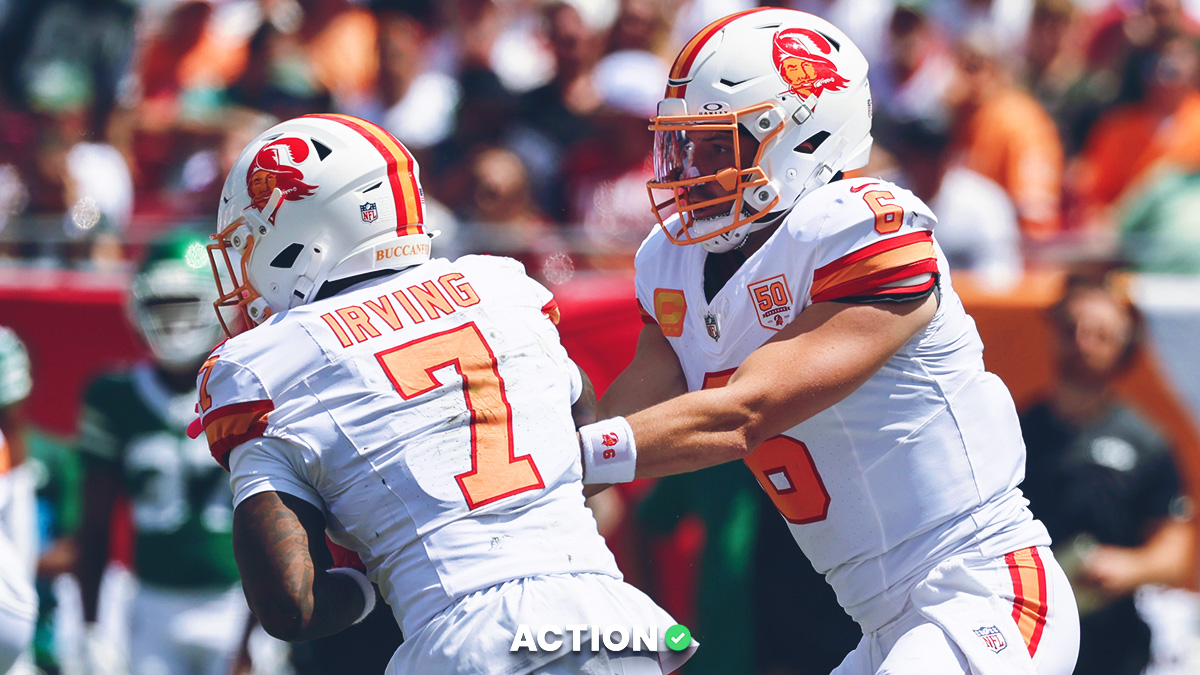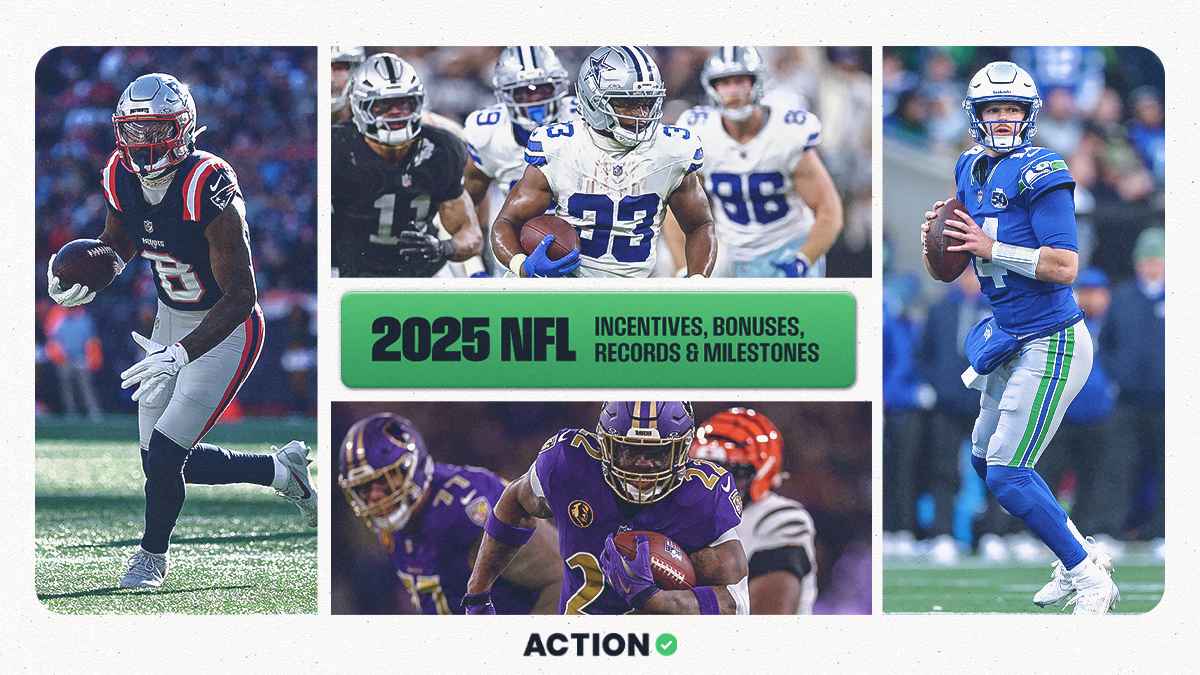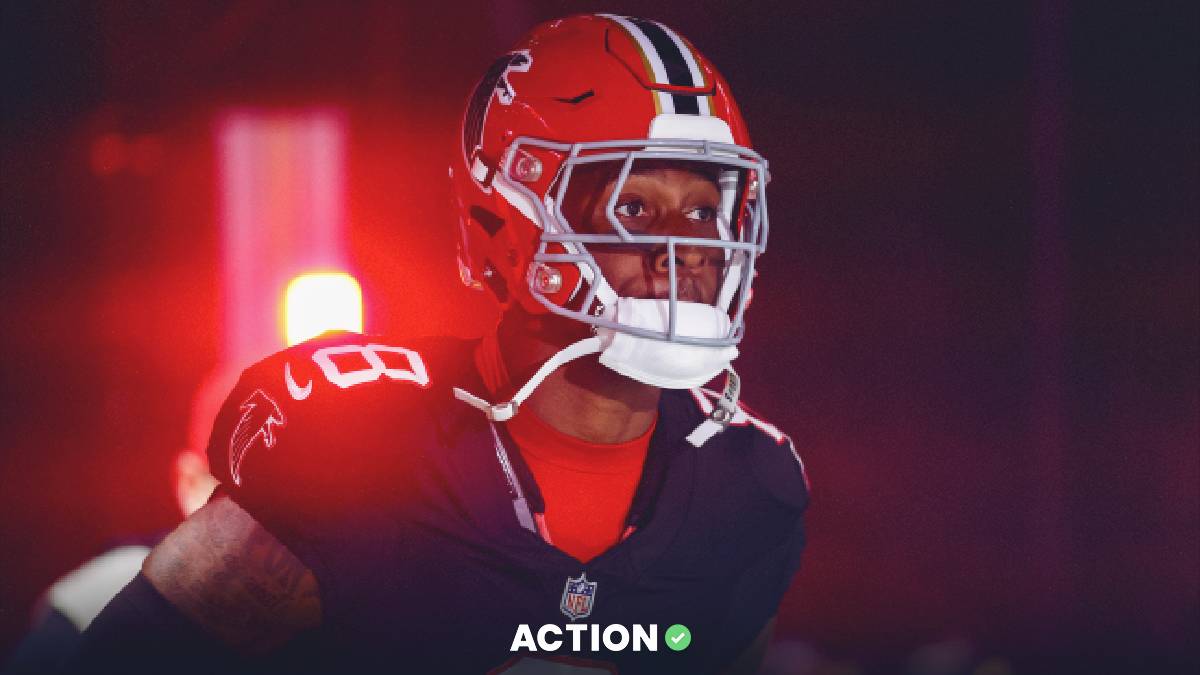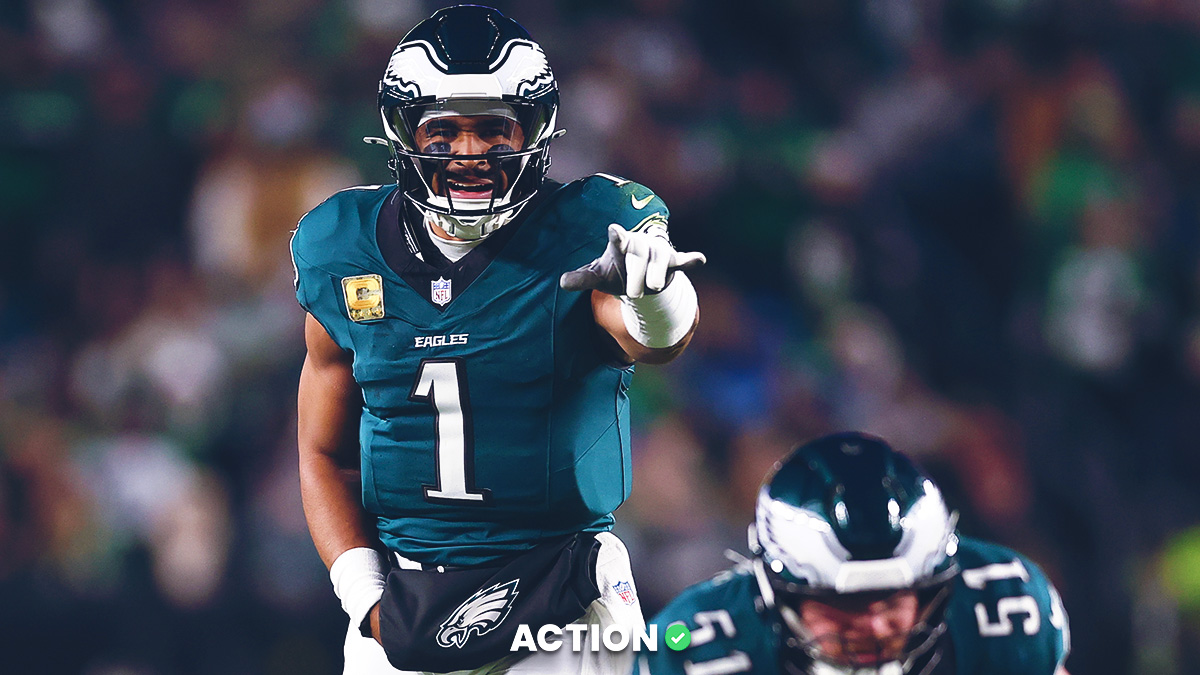- Fantasy players love targeting "funnel spots" to identify potential weekly edges. But as our NFL experts discuss, not every spot is created equal.
In a lot of fantasy analysis this season, you'll hear heuristics like "target running backs as favorites" or "roster pass games when they're Vegas underdogs."
There's some truth to that: Among 544 running backs last season we projected for 10-plus PPR points, dogs averaged 14.13 fantasy points while favorites put up 16.56.
On DraftKings, those dogs hit value just 51% of the time compared to 56% for favorites. There's certainly reason to those analytical rhymes. But then I looked at team-wide data from last year to see if Vegas spread had any predictive value for a team's run/pass ratio.
The reason I think most people want to roster running backs as favorites is because of increased volume — a team with the lead is likely to run out the clock by running the ball. That means more carries and thus likely more fantasy points.
But while running backs do indeed perform better as favorites, there's actually no correlation between Vegas spread and an increased run/pass ratio (an underdog going more pass-heavy than normal or a favorite becoming more run-heavy than their typical rates):
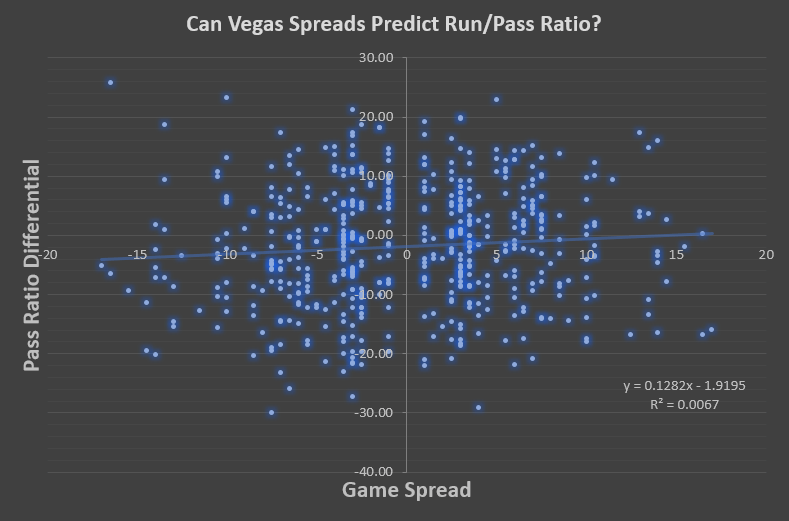
My Action colleagues are much smarter about the NFL than I am, so I pinged Chris Raybon and Matthew Freedman on Slack to talk about this issue.
What follows is a lightly-edited transcript of our back-and-forth on why spreads might not impact run/pass ratio as much as you think.
Bryan Mears: At least last year, it seems the spread had zero effect on whether a team plays differently.
Matthew Freedman: That is correct. It has almost no predictive value.
Mears: Maybe that's because the bad teams are generally always bad? Maybe I should look at the correlation between overall pass ratio and average spread for all games.
Freedman: I think it comes down to this: Almost regardless of matchup or skill discrepancy, teams try to do what they usually do when they have the ball.
Mears: Yeah, I just find it so interesting bc that type of analysis is so pervasive. "Target the pass game because they're 6-point dogs and will throw more than usual." Situational run/pass ratio data says that teams do throw when down, which is obvious. But Vegas spreads are just not predictive of that.
Chris Raybon: It’s generally because of the factors you guys mentioned: (1) team quality as measured by spreads is somewhat consistent or will correct (2) teams do what they do regardless.
Then you mix that w/ fact spreads are just medians and there’s not much there … a 6 point spread seems big, but that’s just a one score game.
Also pass ratio/volume in itself can be misleading. If I’m a good team and I can move 80 yards and score in 5 passes and 1 run, I get penalized compared to a team that takes 10 passes and 1 run to move 70 yards before turning it over on downs.
Mears: Right, volume definitely can be misleading.
Raybon: If you want to cut some of the variance out and and get a close as possible to a team’s true behaviors, best bet is look at what they do on 1st/2nd downs in neutral situations, and how effective they are.
Situational football (3rd down, red zone, etc) has huge impact on games but not as much predictive ability.
Mears: Yep, think that's right.
I think a big part of it is that spreads more predict efficiency for fantasy than run/pass ratio. Running backs do better as favorites, but I don't think it's because teams shift their ratios in a predictable way.
I think it's because they're more efficient/have higher leverage opportunities.
Raybon: Well, it’s also because passing evens out — that saying, “pass to get a lead, run to hold it.”
Running backs do better as favs because they usually score more TDs, which tends to happen because teams in the lead are more willing to run in scoring position.
So yeah… leverage + efficiency… favs over time score more in general… so it’s just running backs getting a percentage share of those TDs scored.
Mears: But not because of increased volume/ratio, interesting.
Raybon: Not necessarily as much as you’d think because, picture this…
You get up 31-10. The running back has a 15-75-1 line. Then you run out the clock, but the D knows it’s coming. So he gets another 10 carries but only for 15 yards.
Those carries are just explanatory of the game script, but his final volume number while high (25) isn’t why he got 90 yards and a TD.
Mears: Very good way of putting it.
Raybon: One more thing I’d add is the fav/dog thing gives you somewhat of an indication of which back will be running. For example, if a team goes down and is in hurry up — let’s say the Redskins — they will have Thompson in instead of AP/Guice. They will still run a draw here and there, so runs won’t go away completely, but the player more likely to be owned in DFS won’t get them.
Also, being behind means more prevent D, which can turn some pass plays into rushing attempts by the quarterback.
Spread is best used in concert with over/under to get a TD projection for a team. And then you just allocate a percentage share of that to each player, so running backs will naturally go down in games they are dogs.
But if you altered their ratios too much on spread, it would almost be like double counting in a way because you’re basing it on a projection that in itself has a pretty decent margin for error.
Mears: I'm wondering if what we've discussed here is something not known by the public + what takeaways could be for fantasy/DFS.
Maybe that funnels (usually defined as a good pass defense funneling production to the run or vice versa, but I think the term can be applied here for teams that run/pass more often based on game flow) aren't a thing?
Maybe don't always target pass offenses as dogs if they're bad offenses in the first place bc the ratio isn't likely to change, and the efficiency sucks then it's likely to continue to?
Raybon: Funnels are a thing, but it depends on the individual teams in question and what the efficiency will be.
For example, what I wrote about Denver in my tendencies piece: Joe Flacco is solid under center because defenses are a bit more on their heels. But when he goes into gun he has sucked.
So if Denver goes down by 10 and goes into hurry-up the whole 4th quarter, that’s not valuable even though they’ll probably pass a lot more than usual.
I’m essentially getting empty pass attempts/targets.
So I’d want the Broncos in a good matchup as a fav where they would have more chances at keeping the D off balance early.
But if it’s a team like the Falcons and I know they are capable of going down the field in hurry-up if need be… I’m happy to target them possible shootouts.
Mears: Not all funnel spots are created equal, think that's smart.
I think another takeaway is to look at actually representative data when trying to predict future performance. Take that situation you laid out earlier: The running back who had 15-75-1 in a blowout game but then went 10-15-0 the rest of the game.
People the next week will look at 25 carries like it's wayyyy more important than someone with 15, although the first 15 for both running backs are likely more predictive of future success.
Raybon: Right. That’s why market share data is useful… RB1 could get 25/30 carries and RB2 could get 15/18 but it’s still 83%.
Same thing with TDs … RB1 & RB2 could get 30% of team TDs … so now it’s about how many TDs are we expecting.
Bottom line: Matchups should be analyzed on a case-by-case basis. There are 31 offenses each defense could potentially face, and each defense in the league will have a unique effect on the usage distribution and efficiency of each one of those other 31 offenses.


